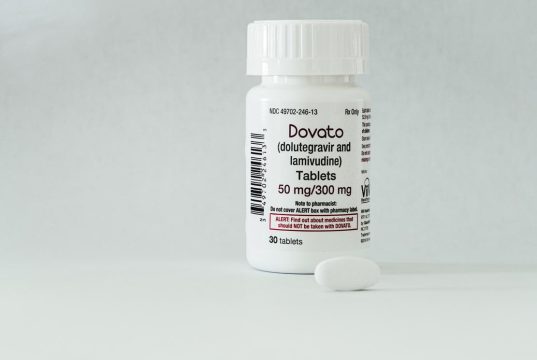Advertisment
ASCO 2012 Report – Olanzapine appears to control breakthrough chemotherapy-induced nausea and vomiting
by Bruce Sylvester – Investigators from a Phase III trial reported at ASCO that chemotherapy-induced nausea and vomiting (CINV) which is unresponsive to conventional treatments reponds to olanzapine (Zyprexa) therapy.
“This is the first time that breakthrough CINV has been studied in a systematic way,” said Rudolph M. Navari, MD, PhD, lead author of the study and professor of medicine, associate dean and clinical director of the Harper Cancer Institute, Indiana University School of Medicine, South Bend, Indiana, USA. “This study suggests that olanzapine will be very useful in these patients who feel very sick and sometimes come to the clinic, hospital or emergency room.”
As background, Dr. Navari noted that CINV affects about 50 to 60 percent of patients taking certain types of chemotherapy, and that a significant minority of patients, about 30 to 40 percent, experience “breakthrough” CINV.
In the double-blind, randomized controlled trial the researchers compared olanzapine to metoclopramide, a drug often prescribed for breakthrough CINV. Subjects using olanzapine did significantly better than the those using metoclopramide.
The researchers enrolled subjects receiving highly emetogenic chemotherapy drugs, including cisplatin, doxorubicin and cyclophosphamide. In the study, 205 patients who had never received chemotherapy before received standard guideline-recommended drugs prior to starting their chemotherapy, in order to prevent CINV. The drugs prevented
CINV in most of the subjects, but 80 developed breakthrough CINV. These subjects were randomized to daily oral olanzapine or daily oral metoclopramide for three days.
They were tracked for 72 hours, through phone calls from study nurses, and also they completed a diary.
During the 72 hours, 71 percent (30 of 42) of those receiving olanzapine had no vomiting, compared to 32 percent (12 of 38) of those receiving metoclopramide. Sixty-seven percent (28 of 42) of the olanzapine subjects reported no nausea, compared to 24 percent (9 of 38) of the metoclopramide subjects.
Dr. Navari noted that olanzapine, approved by FDA for treatment of psychosis, is known to cause a variety of side effects when taken daily for six months or longer. But short-term use in this study did not lead to any significant toxicities. Since breakthrough CINV generally develops between the second to fourth days after chemotherapy treatment, he said, it would not be necessary to take olanzapine for longer than three days.





